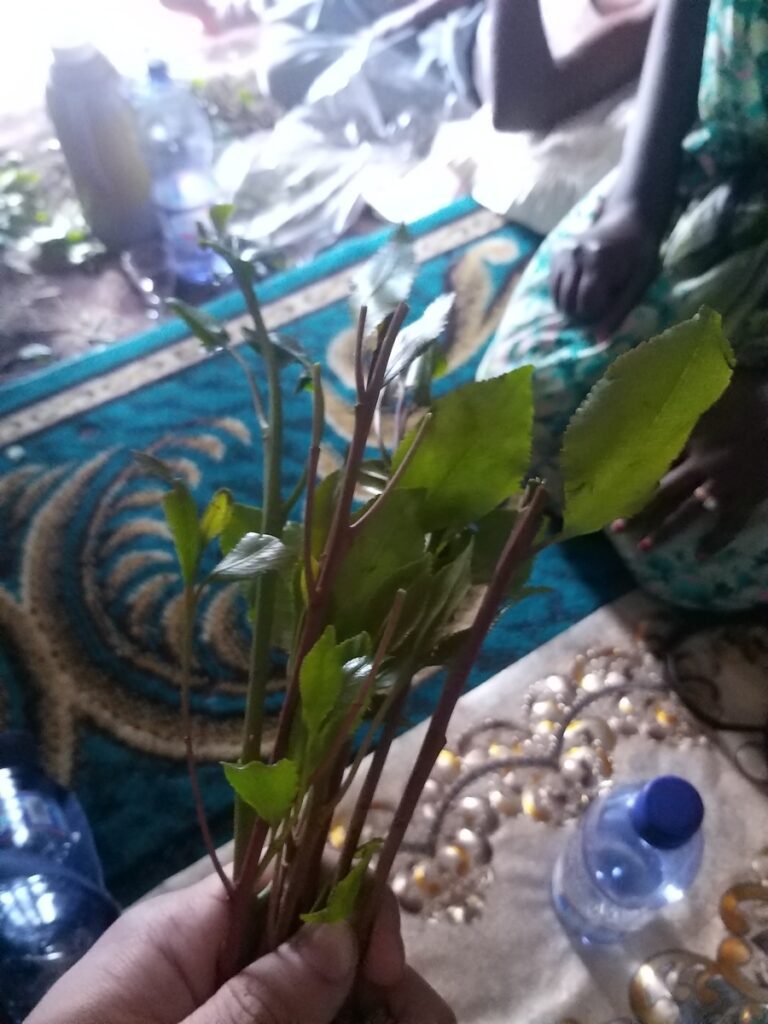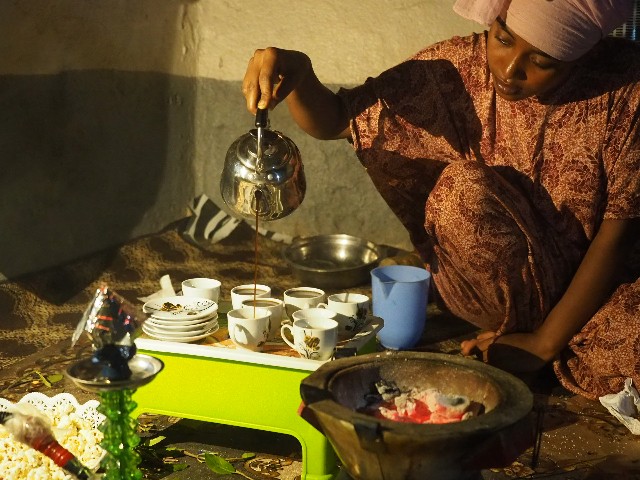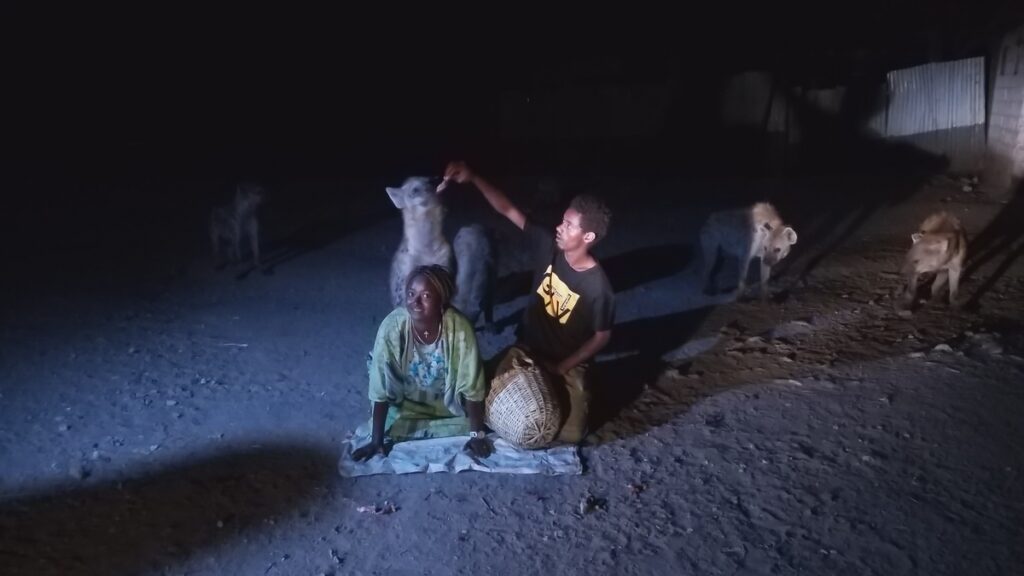
The city of Harar with its historic fortifications still intact today
Located in eastern Ethiopia, Harar is an Islamic holy city with 82 beautiful mosques and a fortress city surrounded by thick walls dating back to the 16th century. This ancient city was registered as a UNESCO World Heritage Site in 2006, and its unique atmosphere captivates many travelers.
My decision to visit Harar wasn’t just for tourism—I wanted to experience life within these historic walls. There are very few guesthouses within the fortress, with most located outside the city walls. However, since I was making the journey to Harar, I wanted to stay inside the “shell”—this desire led me to begin my search for accommodation.
Booking Challenges: The Importance of Local Connections
Inside the fortress city called “Jegol,” there are hardly any accommodation facilities available. However, through internet research, I managed to find a guesthouse called “Rewda Guesthouse.” I discovered that the booking process was extremely analog, with no registration on any booking sites. I learned that reservations could only be made through local intermediaries, so I continued my investigation.
Fortunately, I was able to connect online with a local woman named Alem. She worked as a guide in Harar and could arrange reservations for Rewda Guesthouse. Through simple English email exchanges, I was able to secure a booking. Since Harar is about 50km from the nearest Dire Dawa Airport with limited public transportation options, I also arranged airport transfers through Alem.
A Hidden Lodge Within the Fortress

The guesthouse stands in an ordinary alley without any signage. Without guidance, it would be impossible to find where the guesthouse is located
After entering Harar and walking through the narrow alleys within the city walls with Alem, we arrived at Rewda Guesthouse. Built in traditional Harar architectural style, the main building and annexes are arranged around a central courtyard.

The main building has a reception room filled with hand-woven baskets called “Sefed (ሰፌድ),” a famous traditional craft of Harar. These traditional handicrafts possess a beauty that symbolizes Harar’s culture. The guesthouse is run by a kind-faced local grandmother. Since she only speaks the local language, Alem helped as a translator.
The room I was shown was in the annex, and I appeared to be the only guest. I realized this was a homely establishment run by the grandmother alone.
An Ideal Base for Exploring the Fortress City
The greatest charm of Rewda Guesthouse lies in its excellent location. Being situated within Harar’s fortress city makes it an ideal base for exploring the interior of this World Heritage walled city. In Harar, this means more than just convenience.

For locals who don’t live particularly affluent lives, foreign tourists are often seen as unwelcome. This street photograph was also taken after obtaining permission through Alem.
Harar’s locals are known for casting very cold glances at outsiders, and wandering around the fortress without a clear purpose can be a mentally challenging experience for foreigners. However, by staying within the city walls, you have the clear justification of “coming and going to your accommodation.” This allows you to explore the interior of the fortress city naturally without worrying about local stares.
Every morning, from leaving the guesthouse until returning in the evening, having the status of “guest” gave me a significant advantage in being able to walk around inside the walls more freely than other tourists.
Room and Meals

The guest room wasn’t luxurious, but it was a warm space decorated with small cups and local ornaments.

I apologize that the image is blurry because I took the photo after returning to my room feeling unwell from eating too much local qat.
I was truly delighted when sweet local-style crepes were served for breakfast. For someone who had grown tired of the distinctive sourness of “injera,” the staple of Ethiopian cuisine, these sweet crepes were like a savior.

The accommodation cost was extremely affordable at about 1000 yen (approximately $7-8 USD) per night, including breakfast—an incredible value for money. The price might vary depending on negotiation, but it was very reasonable.
A Heart’s Refuge

As mentioned earlier, Harar is not necessarily an easy place for tourists. The residents within the city walls are not particularly friendly toward outsiders, and simply strolling through the streets can be mentally exhausting. However, the grandmother at Rewda Guesthouse was an exception, treating me, a tourist, with kindness and becoming my emotional refuge during my stay in Harar.
The communication with her that transcended words became a special memory of my journey. Sometimes we could understand each other through gestures and expressions alone, and I was able to feel the warm human connection that transcends language barriers.
Final Thoughts
Today we explored “Rewda Guest House,” a guesthouse located within Harar’s city walls. Unfortunately, Alem, who helped me arrange the booking, is currently recovering from illness, making it difficult to arrange new reservations. Therefore, I cannot directly introduce an intermediary here, but for those hoping to stay in this special place called Harar, I encourage you to first navigate the online world and challenge yourself to find local intermediaries.
The time spent within Harar’s city walls is a precious experience that can never be gained by simply touring tourist sites. A stay at Rewda Guesthouse should become an unforgettable memory where you can touch local life and feel the warmth of the people. Most importantly, as the perfect base for exploring the interior of the fortress city, it will make your Harar experience deeper and richer.
![Mysterious Ethiopian Liquor: Drink “Tella” at a Local Pub! [Ethiopia Travel Journal]](https://en.kosupatravel.com/wp-content/uploads/2022/07/20220728123957.jpg)



![Getting Lost in Addis Ababa’s “Mercato,” the Market That Even Locals Struggle to Navigate [Ethiopia Travel Diary]](https://en.kosupatravel.com/wp-content/uploads/2024/12/20240412145520.jpg)
